Best Goat Milk Formula For Babies With Lactose Intolerance: The Ultimate 2025 Guide
102 hours of research 9 minute read

Are you often worried about feeding your baby because of lactose intolerance? You might feel anxious, as breastfeeding can potentially make things worse. You might also be concerned about the pain and swelling in the tummy of your infant. The chances are that you're highly confused if your newborn is lactose intolerant because your baby is having diarrhea or bubbly, bulky, and watery poop and is not gaining weight. Well, relax! We have covered you here.
Firstly, you need to ensure that your baby is fed correctly, whether you breastfeed your infant or use formula milk. If you've just decided to opt for the bottle-feeding route, there are many baby milk formulas available in the market. But choosing the best fit for your baby is the most challenging task, especially if your baby is lactose intolerant.
This in-depth guide can help you know what measures you should take to ensure your infant's comfort if they are lactose intolerant. But most importantly, it'll help you choose the best goat milk formula for your baby with lactose intolerance and avoid any complications. So, keep reading!
What Exactly Is Lactose Intolerance?
Lactose is the primary carbohydrate in all types of mammalian milk, including humans, buffalo, cows, goats, and sheep. Lactose is a so-called disaccharide that is made up of glucose and galactose. Our body needs an enzyme named lactase to digest lactose. But when our body fails to synthesize this enzyme or does not produce enough of it, we are incapable of adequately digesting lactose and become lactose intolerant. At the age of two, most humans stop producing lactase after weaning.
To simply put, the lactose in the body is not digested or broken down properly, and therefore lactose cannot be absorbed by the gastrointestinal tract. As a result, lactose lingers in the digestive tract until it gets to the large intestine. In the large intestine, the gut bacteria break down the lactose while producing the gases and acids, which result in loose, liquid, and frothy stools. Lactose consumption in such babies may trigger some severe symptoms, including diarrhea, flatulence, swelling, and abdominal pain.
Causes Of Lactose Intolerance In Babies

The exact causes of lactose intolerance may vary depending on your baby's metabolic functioning. Usually, the lactase turns the milk sugar into glucose and galactose, which gets easily absorbed through the intestinal lining. Lactose intolerance may develop when your baby's small intestines don't produce enough lactase to digest the milk sugar.
So, if the infant is lactose intolerant or lactose deficient, the lactose from the dairy products moves into their large intestine instead of being absorbed in the bloodstream. It is the colon in the large intestine where the normal microbes convert the lactose into acids and gases that cause the signs and symptoms of lactose intolerance in your baby.
There are about three types of lactose intolerance depending upon different factors that cause lactose intolerance:
Primary Lactose Intolerance
Primary lactose intolerance is the most common type. The babies with primary lactose intolerance produce enough lactase when they are born. However, the enzyme reserve depletes over time, and the body is no longer to metabolize lactose in the diet.
Secondary Lactose Intolerance
This type of lactose intolerance occurs due to any injury, disease (celiac disease, intestinal infection, or Crohn's disease), or surgery involving the small intestine. This results in decreased lactate production from the intestine. But if the disorder or injury is treated early on, the lactase levels can be restored, improving the signs and symptoms of lactose intolerance with time.
Developmental lactose intolerance
Developmental lactose intolerance (aka congenital lactose intolerance) is an uncommon genetic disorder. Infants born with this disorder are unable to produce lactase enzymes at all. Hence, their gut is unable to absorb or process lactose. Such infants often fail to thrive after birth and often suffer from severe diarrhea after birth.
How Would You Know If Your Baby Is Lactose Intolerant?
If your baby is lactose intolerant, they can show the signs and symptoms of lactose intolerance, usually between 30 minutes to two hours.
Common signs and symptoms may include:
- Diarrhea
- Bloating
- Nausea
- Vomiting (sometimes)
- Stomach pains
- Pain or swelling in the tummy
- failure to gain weight
- Frothy, bulky, or watery poop
- Passing gas and crying when passing feces
What To Do When Your Baby Shows The Following Symptoms?
If your baby shows the above symptoms or has infectious diarrhea, this may indicate that your baby has lactose intolerance. Immediately set an appointment with your doctor if your baby frequently shows the symptoms of lactose intolerance after eating dairy foods.
Lactose Intolerance And The Breastfed Baby
Numerous food allergies and dietary intolerances can disrupt your baby's metabolism. Many essential nutrients pass onto the baby's system through the mother's breastmilk, to which they can be highly allergic or intolerant. Most of the time, the mother is unaware of the food that is igniting the allergic reaction in their baby. If you're suspicious of a food item that may be causing allergy or intolerance to your baby, consult your pediatrician for professional advice.
Lactose is naturally present in the breastmilk, and its amount hardly varies. It does not depend on the lactose consumption of the mother. And the baby intakes the same amount of lactose in the breastmilk when they start to feed and when they end the feeding session. But the milk that the baby consumes at the end of the feeding session contains a lot more fats.
Don't Confuse Lactose Overload With Lactose Intolerance.
The medicinal term for lactose overload is functional lactase insufficiency, and it is a dose-related digestive problem that is very common but poorly known. The symptoms of lactose overload occur when the baby's intestinal tract becomes overloaded with lactose because of overfeeding in bottle-fed babies and excess condition in the case of breastfed babies. This is not a disorder, and the symptoms manifest in response to unfitting feed management. It can be relieved entirely within 24 hours after the feeding strategy is optimized.
Should You Stop Breastfeeding If Your Baby Is Lactose Intolerant?
Sometimes, mothers are recommended to swap breastfeeding with lactose-free formula when their babies show marked symptoms of lactose intolerance. However, various authorities such as AAP and AMA only recommend using lactose-free formula if the baby is formula-fed and is losing weight. But breastmilk remains the best food and can help with gut healing.
Best Goat Milk Formula For Babies With Lactose Intolerance

Here at Organiclifestarts, we believe in delivering the best possible nutritional options for your baby. Organically, European baby formulas are mostly considered the best milk formula for babies. And the famous best goat milk formula for babies with lactose intolerance is the three-stage line from Holle. This formula meets the demanding EU organic regulations as it is produced with safe animal care protocols and premium standards of organic raw ingredients. It's among the top few organic goat's milk formulae picks in the market. Holle goat milk is free of palm oil (which may cause digestive issues in some babies) and has added DHA (omega-3 fatty acid).
What Makes The Holle Goat Milk Baby Formula Best?
The presence and absence of some vital ingredients make the Holle goat milk baby formulas best worldwide. The elements that are the critical part of the Holle goat milk baby formula is:
- Formulas with goat milk
- Formulas with A2 milk
- Demeter Certified Organic Milk
- DHA and ALA (Omega 3 and 6 LCPs)
The ingredients that are not included in the Holle goat milk baby formula is:
- Soy
- Added sugars
- Chemicals or Preservatives
- Corn syrup
- GMOs
- Hormones
- Antibiotics
- Gluten
Goat Milk Formula For Babies With Cow Milk Allergy
While most goat milk formulas are not a substitute for hypoallergenic formulas (which are more commonly used for cow milk allergies), Holle produces industry-leading goat milk formulas that are suitable for most babies who suffer from lactose intolerance. All Holle Goat Formulas and all Holle Goat Dutch Formulas, like other formulas of Holle, are available in three stages, for babies age 0–6 months, 6–12 months, and over 12 months old. You can choose the best formula for your baby by considering their age and desires.
The best goat milk formula for babies with lactose intolerance are:
1. Holle Goat Stage Pre-Organic Infant Milk Formula Best Seller
✓ Age: Birth-6 months (including premature babies)
✓ No palm oil
✓ Contains natural whey, DHA, & ALA
Check PriceThis goat milk formula is appropriate for infants from birth. This formula is an excellent alternative to the cow's milk formulas for babies allergic to milk protein. This formula is easier to digest as it contains low lactose than cow's milk.
-
Why Choose?
- This formula is a complete source of vitamins, nutrients, and minerals for your infant.
- Holle goat pre helps improve constipation, gassiness, and common cramps you're your infant.
- It doesn't contain any soy allergens, sugar, or corn syrup, so it is safe for your infant.
This is the most famous goat milk formula for babies up to 6 months. This formula is made from 100% organic goat's milk and is an excellent alternative to cow's milk baby formulas if your baby is cow milk proteins allergic.
-
Why Choose?
- This goat milk formula is a complete source of vitamins and minerals for your infant from birth to six months.
- This can be used as a supplement to breastmilk.
- This formula is sugar, gluten, and GMO-free.
- It doesn't have any prebiotic or probiotic additives.
- This baby formula comprises vital nutrients for your infants, such as calcium, iron, zinc, and vitamins A, B12, C, and D.
This is the recommended milk formula for babies aged six months and above. This milk formula comprises whole organic goat's milk and is the most popular alternative to cow's milk-based baby formulas. Holle Goat Stage 2 can be safe for babies who have never tried a baby formula before and are transitioning from breastmilk. It is also suitable for babies that are accustomed to eating solid foods.
-
Why Choose?
- This is easily digestible than cow's milk formula.
- This is a complete source of dietary nutrition, vitamins, and minerals
- This formula is helpful to ease the cramps, constipation, and gassiness of your baby
- It is free of any glucose, corn, or soy syrup
- It has both organic maltodextrin starch and organic lactose.
✓ Age: 0-6 months
✓ No palm oil
✓ Contains natural whey, DHA, & ALA
✓ Demeter certified (Organic++)
Check PriceThis goat milk formula is suitable for infants up to 6 months. It is an organic formula prepared especially for infants aged six months. Compared to other Holle goat milk formulas, its larger package provides peace of mind and less stress about running out of formula when you're in dire need of it.
-
Why Choose?
- This formula is full of essential nutrients, minerals, and vitamins for early infancy growth.
- It is soy, gluten, corn, and sugar-free
- It doesn't contain artificial chemicals, synthetic ingredients, or artificial flavorings.
✓ Age: 6-12 months
✓ No palm oil
✓ Contains natural whey, DHA, & ALA
✓ Demeter certified (Organic++)
Check PriceThis goat milk formula is for infants aged six months and above. This is specially prepared to be light on your little one's tummy and offer easier digestion compared to other cow milk-based formulas.
-
Why Choose?
- It is rich in nutrients and essential minerals that encourage early development.
- It can be a source of a healthy and balanced diet.
- Safe for babies transitioning from breast milk or another baby formula.
- Proved helpful in easing bloating and constipation in your baby.
✓ Age: 10+ months
✓ No palm oil
✓ Contains natural whey, DHA, & ALA
✓ Demeter certified (Organic++)
Check PriceThis goat formula is best for toddlers of 10 months and over. This is a nutrient-rich and easily digestible organic formula prepared to provide your baby with the desired amounts of essential vitamins and minerals.
-
Why Choose?
- This formula is made from 100% organic goat's milk that is Demeter certified.
- Best for babies who have started transitioning to solid foods as a supplement.
- It is 100% natural and free from artificial chemicals, artificial preservatives, or artificial flavors.
- Offers more protein and less sugar content than cow's milk.
✓ Age: (Stage 1: 0-6 months), (Stage 2: 6-12 months), (Stage 3: 12-36 months)
✓ No sugar, no corn syrup, no soy, no palm oil
✓ Contains Lactose with a Low Glycemic Index
✓ Contains natural whey, DHA, & ALA
Check PriceKendamil Goat is carefully crafted using 100% full cream goat milk, making it the perfect choice for infants intolerant to cow's milk formulas. For parents seeking the most natural ingredients in baby formula, this option fits the bill perfectly.
-
Why Choose?
- This formula is popular for babies with digestive issues or allergies to cow’s milk.
- With HMOs (Human Milk Oligosaccharides) similar to natural breast milk.
- It is free of any glucose, corn, or soy syrup.
- It proudly features vegetarian-friendly plant-based DHA and ALA (Omega-3 and 6 LCPs) sourced from marine algae.
- It doesn't contain artificial chemicals, synthetic ingredients, or artificial flavorings.
✓ Age: (Stage 1: 0-6 months), (Stage 2: 6-12 months), (Stage 3: 12+ months)
✓ No soy, corn syrup, maltodextrin, or starch
✓ Contains natural whey, DHA, & ALA
Check PriceKabrita Goat Milk formula is suitable for babies with cow milk sensitivity, as it is based on high-quality goat milk. It is easy to digest and contains natural prebiotics to support gut health. Breaking free from the notion of a "goaty" taste and aroma often associated with goat milk, Kabrita assures parents that its baby formulas offer a mild taste. This is achieved by using fresh Dutch goat milk and an efficient production process.
-
Why Choose?
- Easier to digest than cow milk formulas.
- Less allergens than cow milk formulas.
- Ethically sourced ingredients.
- DHA and ALA for efficient brain development.
- It is free of any glucose, soy, or corn syrup.
- No quality is compromised as the product has no added preservative, chemical, synthetic or genetically modified ingredients.
✓ Age: (Stage 1: 0+ months), (Stage 2: 6+months), (Stage 3: 12-36 months)
✓ No soy, palm oil, corn syrup, maltodextrin, or starch
✓ Contains DHA, & ALA
✓ 100% Non-GMO formula
Check PriceNannycare stands out for its commitment to using only the cleanest and ethically sourced ingredients in their baby formulas. By using 100% full cream premium New Zealand goat milk as the foundation for their formulas, Nannycare ensures a high standard of nutrition for babies while also being easier to digest than cow milk formulas.
-
Why Choose?
- This formula is full of essential nutrients, minerals, and vitamins.
- Uses A2 milk formula with only A2 Beta Caseins.
- No added Probiotics & Prebiotics.
- Premium goat milk formula that is ideal for gentle stomachs.
- It doesn't contain artificial chemicals, synthetic ingredients, or artificial flavorings.
✓ Age: (Stage 1: 0-6 months), (Stage 2: 6+ months), (Stage 3: 12+ months)
✓ No sugar, corn syrup, or soy
✓ Contains Prebiotics, DHA, and ALA
✓ HiPP's most popular formula
Check PriceHiPP Dutch Goat formula distinguishes itself by instituting its own rigorous quality assurance measures, going beyond the conventional "organic baby formula" standard. All essential nutrients, vitamins, and minerals are added in the right proportion to ensure the early infancy development of your baby. HiPP Dutch Goat offers several key benefits. Firstly, it is easier to digest when compared to cow milk formulas, making it a suitable choice for infants. Additionally, this formula contains fewer allergens than traditional cow milk formulas, reducing the likelihood of allergic reactions.
-
Why Choose?
- 100% Organic Goat Milk Formula.
- Easier to digest than cow milk formula.
- Less allergens than cow milk formulas.
- It contains natural prebiotics derived from organic lactose found in goat milk.
- No quality is compromised as the product has no added preservative, chemical, synthetic or genetically modified ingredients.
The Ultimate Guide To Introducing Goat Milk Formula To Your Breastfed Baby

If you're a new mother and a newbie in the parenting space, and you don't know much about the use of baby formulas, don't worry! We're here to help!
While using any baby formula, you should keep in mind that:
- Every baby formula uses diverse mixing ratios. So, it would help if you only used the scoop that comes with the formula.
- Never mix the baby milk formulas with any additional ingredients.
- Follow the instructions about the proportion of water and formula scoops carefully.
- Don't use stale baby formula feeds. Always prepare the fresh feed.
- Always sterilize your workplace before preparing the feed for your baby.
- Use the freshly prepared feed within 2 hours, and don't forget to dispose of any leftover feed.
- And once you've opened the formula, use it within 21 days and mind the expiration date.
Goat Milk Formula for Lactose Intolerance
Your child's health and well-being have always been our top priority. We offer products that are tested and verified accordingly to strict EU standards. Holle baby formulas are rich in nutrients and are 100% organic with the Demeter certification. Fatty acids in goat milk are a lot smaller than those in cow milk, making digestion a lot easier. These formulas contain an adequate quantity of vitamin A, which helps keep your baby's eyesight, teeth, and skin healthy. So, if you're looking for the best goat milk formula for babies with lactose intolerance that is both safe and highly nutritious, Organiclifestart is the best place to shop for!
Finding the best goat milk formula for babies with lactose intolerance is crucial for their overall health and well-being. Lactose intolerance can be diagnosed through a lactose intolerance test at home or by a healthcare professional. When selecting a lactose intolerance formula, it's essential to consider factors like nutritional content, taste, and ease of digestion.
Goat milk formulas are an excellent option for babies with lactose intolerance, as they are naturally lower in lactose compared to cow's milk. Additionally, they offer a range of lactose-free dairy products such as lactose free cream cheese, lactose free protein shakes, lactose free cottage cheese, lactose free sour cream, lactose free butter, lactose free whole milk, lactose free condensed milk, lactose free chocolate milk, lactose free cream, lactose free powdered milk, and more. These products are suitable for individuals with lactose intolerance, providing a variety of choices to cater to different dietary preferences and needs. When choosing dairy products that are lactose free ensure to read labels and check for added sugars or artificial ingredients.
When searching for the best lactose free milk or formula for your baby, it's essential to consult with a healthcare professional for personalized recommendations and to ensure that the chosen product meets your baby's nutritional requirements. Ultimately, selecting the right lactose free formula option can help alleviate digestive discomfort and ensure that your baby receives the necessary nutrients for healthy growth and development.
Most Popular Formulas For Babies With Lactose Intolerance
Organic Life Start is committed to providing accurate, reliable, and trustworthy information to parents and caregivers. We carefully choose credible sources and follow a meticulous fact-checking process to uphold the highest standards in infant nutrition and parenting advice. To learn more about our dedication to accuracy, please explore our editorial guidelines.
Link To Sources
- https://www.canr.msu.edu/news/goat-milk-versus-cow-milk-a-comparison
- https://www.webmd.com/diet/goat-milk-are-there-health-benefits
- https://www.healthline.com/nutrition/does-goat-milk-have-lactose#bottom-line
- https://dynamicchiropractic.com/article/38646-goats-milk-a-natural-alternative-for-milk-sensitive-patients
- https://advancedfoodintolerancelabs.com/blogs/news/does-goat-milk-have-lactose-seeking-dairy-alternatives


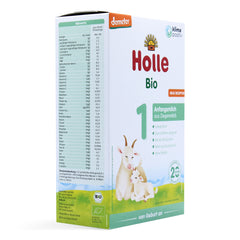
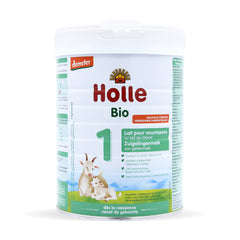
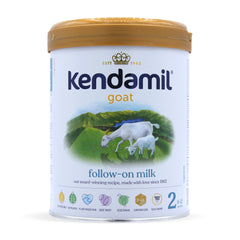

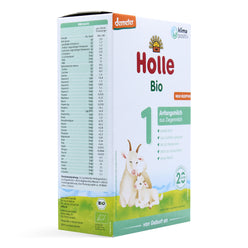
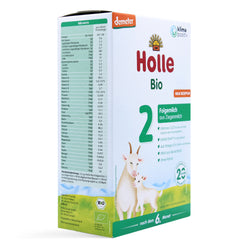
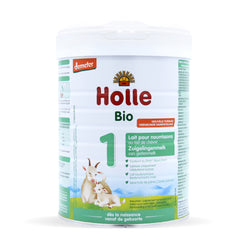
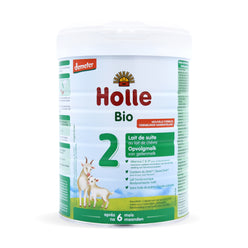
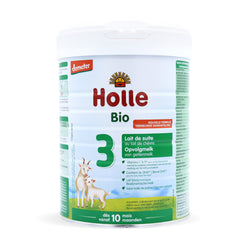
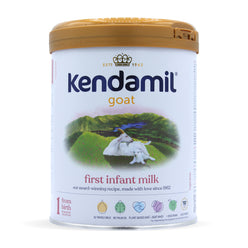
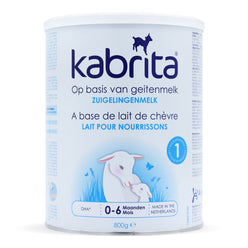
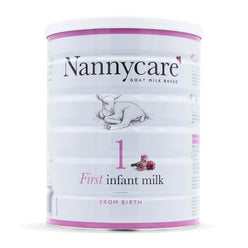
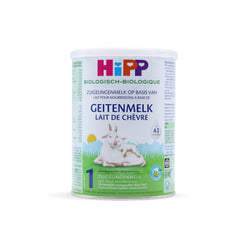






Leticia -
Finding the right formula for my lactose-intolerant son Larion seemed insurmountable at first. I wanted something that would be easy on his stomach but also give him all the vitamins and minerals he needs to grow strong and healthy. I read the Ultimate 2025 Guide to the perfect Goat Milk Formula for Babies With Lactose Intolerance, and then I opted to try HiPP Dutch Goat. It has really been the perfect decision for him. Larion seemed more at ease from the first bottle, and feeding time was no longer a tense time. His digestion got better, and he doesn’t have any more problems with pain after eating. I really like that HiPP Dutch Goat employs nothing but trustworthy, premium ingredients. I feel more at ease knowing we made the right choice after seeing how he has grown and achieved. That he is getting all the nourishment he needs is a relief. After feeding him, I’ve never felt more at ease, joyful, and confident in my role as a parent. Choosing HiPP Dutch Goat has been a great decision for Larion and our family.
Hanna Tafoya -
January 08, 2026
When I found out that my newborn son Irving was allergic to cow’s milk, I felt a lot of different feelings and worries as I looked for the right formula for him. Each feeding was fraught with anxiety, and I constantly felt as if I had exhausted all of my alternatives. After reviewing The Ultimate 2025 Guide to the Best Goat Milk Formula for Babies with Lactose Intolerance, I identified several previously unexamined options. I decided to attempt Holle Goat Dutch as I was already proficient in it. Irving was more reserved and self-assured right from the bat. We saw fewer of the long-lasting reactions we had seen before, and the feeding time became calm again. Witnessing his happiness after eating seems to be a big plus. He really appreciates being told that the parts are soft and made just right for him. Watching him grow and change without getting worried has been very comforting. Holle Goat Dutch has made our feeding experience much better in good ways.
Roxanne Vicente -
January 03, 2026
I was very careful when I looked for the correct formula for my son Tomy, especially because he is lactose intolerant. I wanted a goat milk formula that would be easy on his stomach, yet give him the nutrients he needs to grow. I read the Best Goat Milk Formula for Babies With Lactose Intolerance: The Ultimate 2025 Guide and decided to try Holle Goat Dutch. It has worked out so well for him. It was such a relief to notice that Tomy seemed more at ease and peaceful from the first bottles. His digestion is significantly better now, and he eats without any problems, unlike before. It’s nice because Holle Goat Dutch employs all-natural materials that you can trust. I’m delighted we made the right choice because he is doing so well. Now, feeding time is a happy and peaceful time for us. It’s nice to hear that Tomy is getting a formula that actually helps him. Holle Goat Dutch has been a real blessing for him and our family.